QuestionHarley was my elderly father's dog and will be 4 years old in June. Harley was pretty much of a scaredy-cat until my dad got sick. While I was caring for Dad Harley became aggressive, so much so that in the Hospice notes it was required that he be put out of the house while the nurses and caregivers were here. He has bitten the nurse, the caregiver, someone on the street (was on the leash but got loose) and two neighbors. Dad has since passed away and Harley lives with my brother and sister-in-law and visits me often. He is still very aggressive and no one can come to the house or even out in front of the house that he doesn't sound like he's going to break through the door. What can we do to stop this type of behavior? Our vet said we might have to put him down and we certainly don't want to do that. Not only because we love Harley but because he was Dad's dog and Dad loved him so much we even buried him with a picture of Harley in his hand. He also barks non-stop when he's outside. He stayed with me a day and a half while my brother and his family went on a trip and my neighbor called complaining about him barking non-stop while I was at work. She said she couldn't enjoy being outside or having her windows open when Harley was around. What CAN we do??
AnswerHi Tami,
Harley needs some firm leadership in his life. That pretty much sums up the dominate aggressive relationship Harley has with you.
You would see the best results, in the shortest amount of time if you were to work with a professional dog trainer, or behaviorist. You will learn how to be the strong "pack leader" Harley needs, and Harley will learn to obey. You can get a recommendation for a trainer from your vet, boarding kennel, friends, or the yellow pages. Look under Obedience Schools, or Dog Training.
Many dogs develop a barking habit. A dog left alone or confined for long periods without supervision is likely to bark because he feels anxious or sad, or is afraid the owner may not return. Boredom also plays a part in barking.
Your neighbor has every right to be annoyed. There might even be laws in your community regarding noise. Tell your neighbor you're working on this, he or she will know that their complaints aren't falling on deaf ears. Many times neighbors will cut you a little slack, if they know you're taking steps to fix the problem.
Until you and your dog trainer can get a handle on Harley, you'd be better off not leaving Harley outside unattended for any length of time. If there is potential for Harley to be destructive when left alone in the house you'd need to contain him in either a dog crate, or part of a room with the help of a child-gate or two. Harley might still bark, but at least he'll be muffled. Sometimes leaving a radio or TV on will help pacify a dog and help reassure them.
Dogs that spend most of their time in the backyard or in the house probably need an exercise outlet. Even if your yard is large, dashing around it in circles is not the equivalent of exercise and interaction.
If Harley must be left outside while you're at work during the day, you should give him a VERY long walk or a good run, before putting him out in the yard. When you send Harley out in the yard as you leave for work, he panting and so utterly tired that spending time barking won't be in the cards. A tired dog is a quiet dog!
Whether you leave Harley in the house, or out in the yard, giving him something to do (beside bark!) is another good idea. A Kong or BusterCube style toy is made especially to consume long periods of time, and keep a dog occupied. You insert food into these style toys, and the dog has to work to get the food out. It helps to rotate the food or treats you put in the toy, to keep it interesting. When you return home, take the toy away, and only give it to Harley when he's going to be left alone. This can help keep the toy interesting, exciting, and "new". Leaving Harley with variety of toys can also help keep him busy during the day.
If Harley is left outside while you're at work, bring him into the house when you get home. It's important that he feels he's part of the family and is loved. Develop a relationship with him through play and fun.
If Harley still insists on barking his heart out, even with the additional exercise you'll be providing, then you may need to employ a more serious at-home training strategy like this:
First, teach him that barking is okay until he is told to "Be quiet." Each time your dog barks, command him to "Be quiet." Simultaneously, hold a treat in front of your dog's nose. Most dogs get quiet immediately because they can't sniff and lick the treat while barking at the same time.
Praise Harley continuously during his quiet time with petting and words of encouragement. After three seconds of no barking, let him have the treat. As you continue with your training, increase the amount of time you require him to be quiet before giving the treat.
When your Harley makes a mistake and barks (and he will) reprimand him immediately. Never strike him, but do something that will catch his attention, such as clapping loudly or squirting water in his face. As soon as he stops barking, you must instantly reward him.
You need to be consistent in your training, and if he's outside and barking while you're at work, it's counter productive. It is going to take time, especially because it's his habit.
You can read more about training Harley not to bark here:
http://www.placervillevet.com/training_your_dog_to_stop_barking.htm
I hope I've been a help.
Best of luck.
Patti

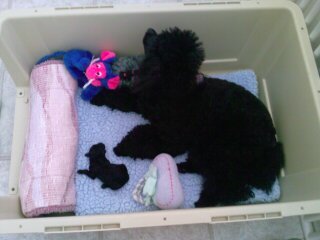 Diarrhea in Nursing Bitches
QuestionAtrix & Pup
QUESTION: My Champion Mi
Diarrhea in Nursing Bitches
QuestionAtrix & Pup
QUESTION: My Champion Mi
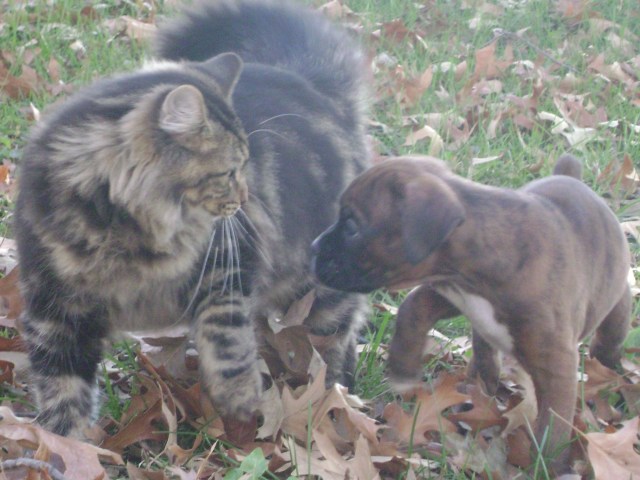 Puppy wont come!
QuestionCapone & Rascal
QUESTION: Help! &nbs
Puppy wont come!
QuestionCapone & Rascal
QUESTION: Help! &nbs
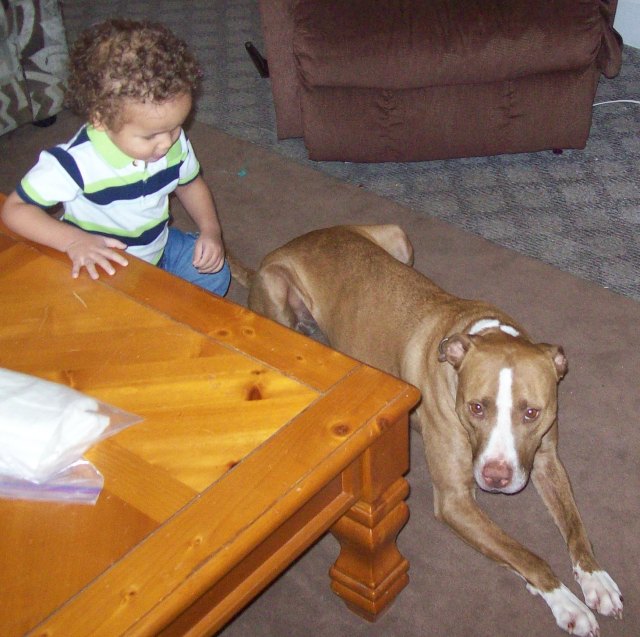 my older dog is house broken but not
QuestionQUESTION: I got a 9 yr old dog from a shelter a
my older dog is house broken but not
QuestionQUESTION: I got a 9 yr old dog from a shelter a
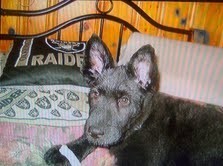 what is my dog????
Question
Connie
Patti, i got my dog Connie a few months
what is my dog????
Question
Connie
Patti, i got my dog Connie a few months
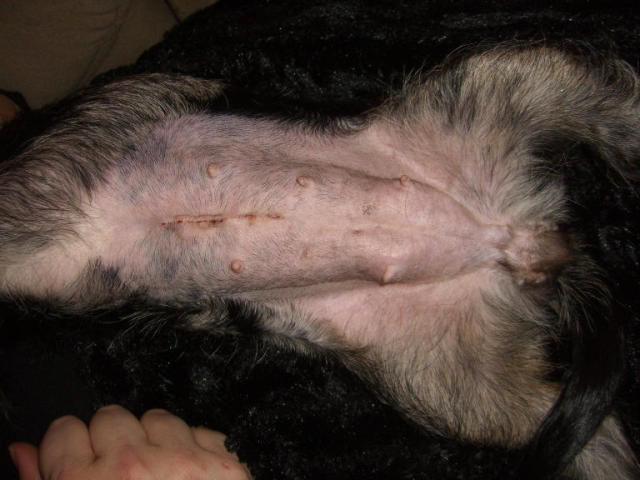 Dachshund spay - swollen mammaries
Question
Lilly
Hi Patti,
We took our 10 month old mini
Dachshund spay - swollen mammaries
Question
Lilly
Hi Patti,
We took our 10 month old mini